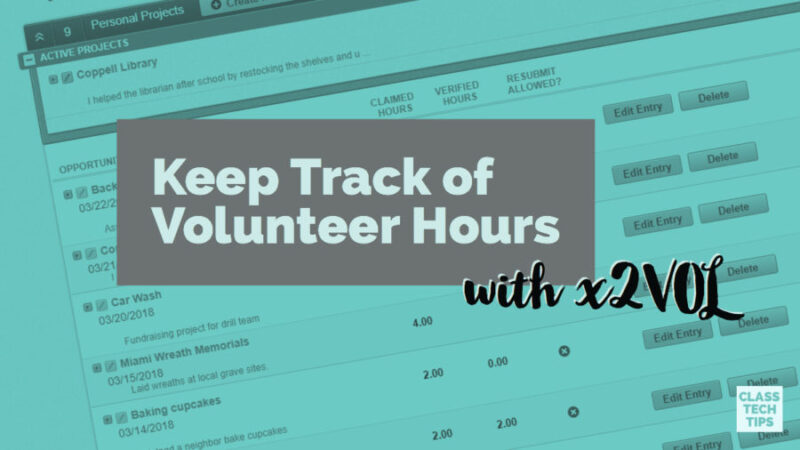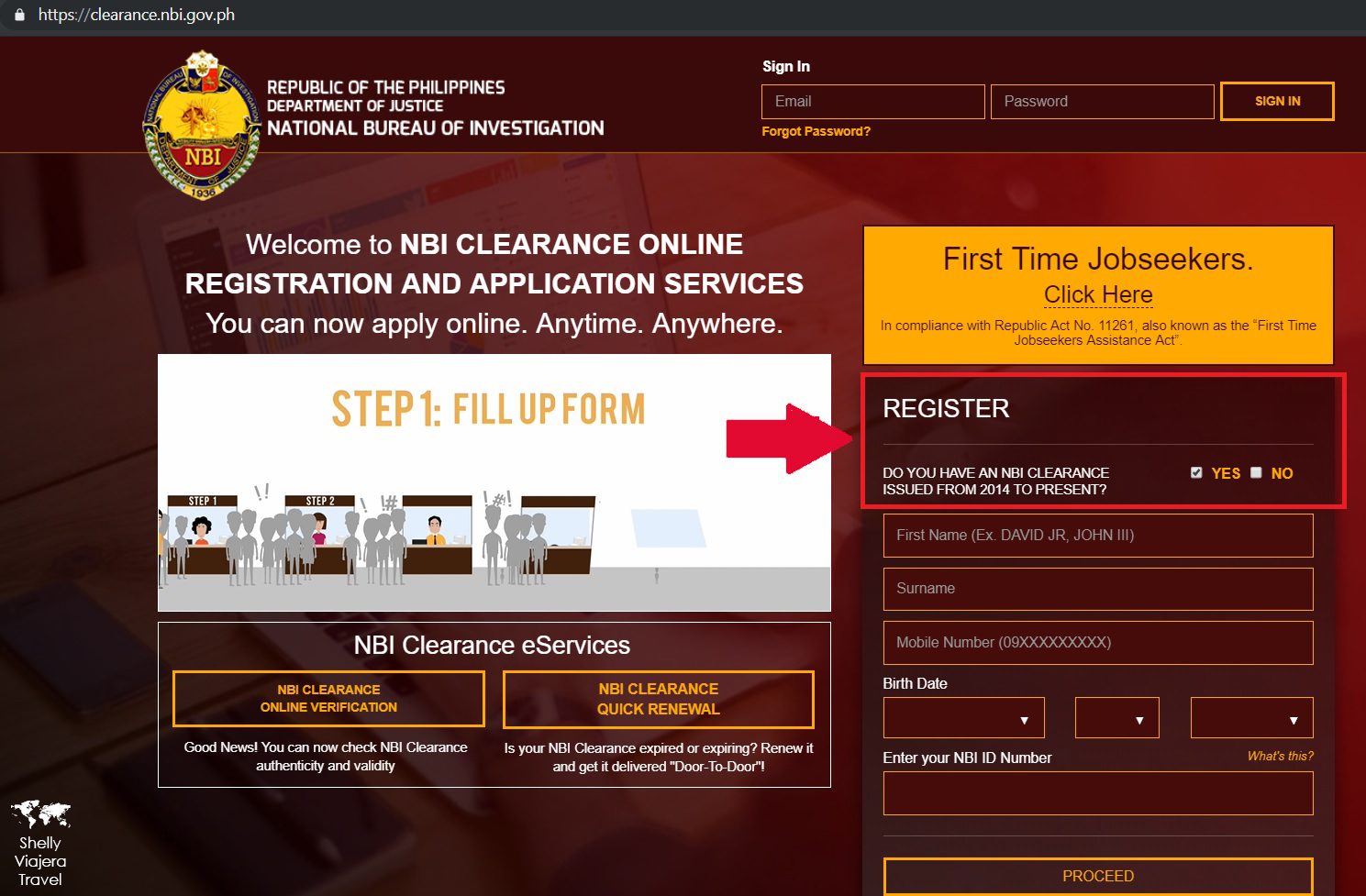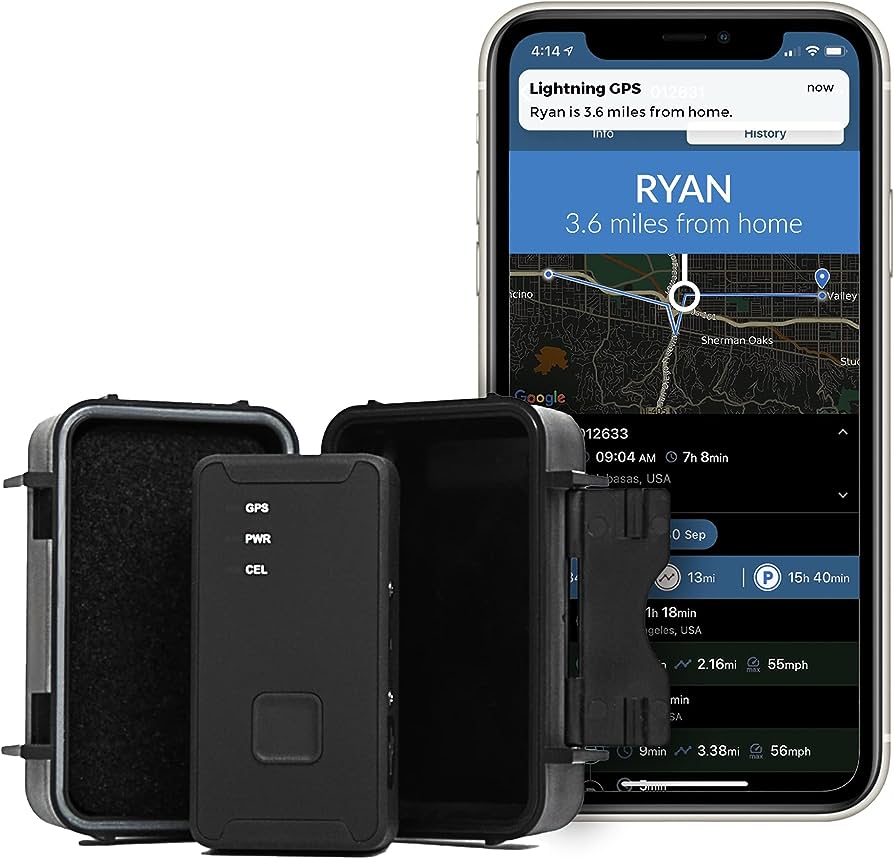To track volunteer hours, create an organized system and use tools like spreadsheets, online tracking platforms, or dedicated volunteer management software. Keeping accurate records is essential for volunteering organizations to assess their impact, recognize volunteers’ contributions, and report to funding sources and stakeholders.
Additionally, tracking volunteer hours helps volunteers themselves keep tabs on their progress, fulfill academic or workplace requirements, and showcase their dedication and commitment. By implementing a solid tracking system, organizations and volunteers can ensure transparency, accountability, and the ability to measure the collective impact of their efforts.

Credit: classtechtips.com
Understanding The Importance Of Tracking Volunteer Hours
Tracking volunteer hours is a crucial aspect of volunteer management. It helps organizations measure their impact, identify areas for improvement, and recognize their volunteers’ dedication. Learn how to effectively track volunteer hours to maximize engagement and success.
Volunteering is an incredibly noble act, benefiting both organizations and volunteers themselves. However, many people overlook the importance of tracking volunteer hours. In this section, we will explore why tracking volunteer hours is essential and the benefits it brings to organizations and volunteers.
Why Tracking Volunteer Hours Is Essential For Organizations And Volunteers:
- Accurate reporting: Tracking volunteer hours allows organizations to maintain accurate records of the time volunteers dedicate to various projects and activities. This data is invaluable when reporting to stakeholders, funders, or other regulatory bodies.
- Resource planning: By tracking volunteer hours, organizations can gain insights into the availability and commitment of their volunteer base. This information helps in planning and allocating resources more effectively, ensuring that projects are adequately staffed.
- Recognition and appreciation: Accurate tracking of volunteer hours enables organizations to acknowledge the efforts and dedication of their volunteers. Recognizing volunteer contributions builds stronger relationships, boosts morale, and encourages further engagement.
- Compliance with regulations: In some instances, organizations may be required to provide proof of volunteer hours for compliance with regulations or legal purposes. Properly tracking hours ensures that organizations stay on the right side of these mandates.
The Benefits Of Accurately Recording Volunteer Hours:
- Enhanced accountability: Accurately recording volunteer hours promotes transparency and accountability within organizations. It ensures that all volunteer work is properly documented and can be easily verified if necessary.
- Improved program evaluation: Accurate data on volunteer hours allows organizations to evaluate the impact and effectiveness of their volunteer programs. It provides the information needed to measure the success of initiatives and make informed decisions for future improvements.
- Optimized volunteer recruitment: Tracking volunteer hours enables organizations to identify high-performing volunteers easily. This information can be used to optimize volunteer recruitment strategies by targeting individuals who have already demonstrated their commitment and dedication.
- Effective resource allocation: Accurate records of volunteer hours facilitate better resource allocation. Organizations can identify where volunteers are most needed and allocate resources accordingly, ensuring that projects receive adequate support.
How Tracking Volunteer Hours Can Improve Decision-Making And Resource Allocation:
- Informed decision-making: By tracking volunteer hours, organizations have access to concrete data that can inform decision-making processes. Analyzing trends in volunteer hours can identify areas of success and areas in need of improvement, leading to more informed and strategic decision-making.
- Efficient resource allocation: Tracking volunteer hours enables organizations to allocate resources more efficiently. By identifying peak times for volunteer availability or specific skills offered, organizations can ensure that resources are directed where they are most needed, maximizing impact.
- Tailored volunteer engagement: Accurate tracking of volunteer hours allows organizations to tailor volunteer engagement strategies. With insights into each volunteer’s commitment and preferences, organizations can create personalized experiences that keep volunteers engaged and motivated.
- Stakeholder reporting: Tracking volunteer hours provides accurate and reliable data that organizations can use when reporting to stakeholders. Quantifying volunteer hours adds credibility to reports, showcasing the organization’s impact and the dedication of its volunteer base.
In essence, tracking volunteer hours is not just a task for administrative purposes – it is a vital component of effective volunteer management. It benefits organizations by promoting accountability, informing decision-making, and optimizing resource allocation. Additionally, volunteers themselves benefit from accurate tracking through improved recognition, enhanced engagement opportunities, and the ability to see the impact of their efforts.
Creating An Effective Volunteer Hour Tracking System
Learn how to effectively track volunteer hours with an efficient system that ensures accuracy and transparency. Keep records organized and easily accessible for better management and reporting.
Investing in an effective volunteer hour tracking system is crucial for organizations that rely on volunteer support. Not only does it provide valuable data for reporting and analysis, but it also ensures that volunteers are recognized for their valuable contributions.
To establish an efficient tracking system, consider the following steps:
Choosing The Right Tools And Software For Tracking Volunteer Hours
To streamline the process of tracking volunteer hours, it’s important to select the right tools and software that fit the needs of your organization. Here are some factors to consider:
- User-friendly interface: Opt for tools or software with an intuitive interface that is easy for both volunteers and administrators to navigate.
- Accessibility: Choose a solution that can be accessed from different devices (e.g., desktop, mobile) to accommodate volunteers who prefer different platforms.
- Automation capabilities: Look for features that automate tasks like generating reports or sending reminders to volunteers to ensure accuracy and efficiency.
- Integration with existing systems: If your organization already utilizes a volunteer management system or database, seek tools or software that can integrate seamlessly with these existing systems.
- Scalability: Consider the size of your organization and future growth potential. Ensure that the chosen tools or software can accommodate increasing numbers of volunteers and hours logged.
Setting Up A Centralized Database To Record And Manage Volunteer Hours
Creating a centralized database to store and manage volunteer hours is essential for an efficient tracking system. This enables easy access to information and supports accurate reporting. Here’s how to set up a centralized database:
- Choose a reliable database management system: Select a database management system that aligns with your organization’s needs and budget. Popular options include MySQL, Microsoft SQL Server, or cloud-based options like Amazon RDS or Google Cloud SQL.
- Design the database structure: Define the necessary fields to capture relevant information, such as volunteer name, date, project, and hours volunteered. Ensure the database design can accommodate future data growth.
- Establish secure access: Implement proper security measures to protect the sensitive volunteer data stored in the centralized database. Set access permissions and user roles to maintain data privacy.
- Regularly update and maintain the database: Ensure that the database is kept up-to-date with accurate information. Regularly perform backups to prevent data loss.
Establishing Clear Guidelines For Volunteers To Log Their Hours Accurately
It is essential to establish clear guidelines for volunteers to log their hours accurately, as this ensures the reliability of the data collected. Consider the following guidelines:
- Provide detailed instructions: Clearly communicate how volunteers should record their hours, including the required information and preferred format (e.g., date, start and end time, project description).
- Specify approved activities: Define the activities that can be counted as volunteer hours. This helps volunteers accurately categorize their contributions and prevents confusion.
- Offer multiple submission options: Provide various methods for volunteers to submit their hours, such as online forms, mobile apps, or even traditional paper forms. Offering flexibility increases participation and convenience.
- Provide ongoing support: Explore ways to support volunteers in accurately logging their hours, such as hosting training sessions, providing instructional materials, or offering a helpline for questions or concerns.
- Regularly validate and verify entries: Regularly review volunteer hour records to ensure accuracy and identify any discrepancies or errors. This process helps maintain data integrity.
By utilizing the right tools and software, setting up a centralized database, and establishing clear guidelines for volunteers, organizations can create an effective volunteer hour tracking system. Not only does this system streamline processes, but it also ensures the accurate recording and recognition of volunteers’ invaluable contributions.
Implementing Best Practices For Volunteer Hour Tracking
Discover how to effectively track volunteer hours by implementing best practices. Streamline your process and gain accurate data for reporting and recognition purposes.
Providing training and resources for volunteers to understand the tracking process:
- Conduct thorough training sessions to educate volunteers about the importance of tracking their hours.
- Create comprehensive documentation or guides to provide step-by-step instructions on how to record volunteer hours accurately.
- Offer online tutorials or instructional videos to accommodate different learning preferences.
- Organize workshops or webinars to address any questions or concerns volunteers may have regarding the tracking process.
Regularly communicating with volunteers about the importance of tracking hours:
- Maintain open lines of communication with volunteers to emphasize the significance of tracking hours.
- Use email newsletters or bulletins to remind volunteers about the tracking process and any updates or changes.
- Share success stories or testimonials from volunteers who have benefited from tracking their hours, highlighting the impact their efforts have made.
- Encourage volunteers to share their experiences with fellow volunteers, fostering a culture of accountability and motivation.
Ensuring consistency and accuracy through regular audits and reviews:
- Conduct regular audits of volunteer hour records to identify discrepancies or errors.
- Assign dedicated staff members or volunteers to review and verify the accuracy of the recorded hours.
- Implement mechanisms for volunteers to provide feedback or report any concerns related to their tracked hours.
- Continuously monitor and evaluate the effectiveness of the tracking system to identify areas for improvement and make necessary adjustments.
By implementing these best practices for volunteer hour tracking, organizations can ensure that the process is understood by volunteers, consistently communicated, and accurately recorded. It not only helps organizations gather valuable data but also recognizes the contributions of volunteers and encourages future participation.
Streamlining Volunteer Hour Reporting And Verification
Efficiently track and verify volunteer hours with our streamlined system, ensuring accurate reporting for organizations. Simplify the process of logging and monitoring volunteer activity, promoting transparency and efficiency in tracking volunteer contribution. Transform your volunteer management process today.
Volunteers play a crucial role in nonprofit organizations, community events, and various social initiatives. However, effectively tracking and verifying volunteer hours can be a time-consuming and challenging task. To ensure streamlined volunteer hour reporting and verification, organizations can follow these key strategies:
Developing Standardized Reporting Templates For Volunteers:
- Create a standardized reporting template that captures essential details such as volunteer name, date, time in, time out, and the tasks performed. This will ensure consistency and ease in recording volunteer hours.
- Include a section in the template for volunteers to provide a brief description of their activities, allowing organizations to gain insight into the value of their contributions.
- Consider providing clear instructions within the template to guide volunteers on how to accurately record their hours.
Implementing A Verification Process To Validate Volunteer Hours:
- Designate a point person or team responsible for reviewing and verifying the reported volunteer hours.
- Include a step in the verification process to communicate with supervisors or project leads who can vouch for the volunteers’ participation.
- Regularly follow up with volunteers and their supervisors to cross-check the reported hours and ensure accuracy.
Utilizing Technology To Automate Reporting And Verification Procedures:
- Explore volunteer management software or platforms that offer automated reporting features. These tools can simplify the process by allowing volunteers to log their hours digitally.
- Seek software that provides data analysis capabilities, enabling organizations to generate reports and analyze volunteer contributions at various levels.
- Utilize digital signatures or electronic approvals to streamline the verification process, eliminating the need for manual paperwork.
Incorporating these strategies into volunteer management practices can significantly enhance the efficiency and accuracy of tracking volunteer hours. By developing standardized templates, implementing effective verification processes, and utilizing technology, organizations can streamline volunteer hour reporting and verification, saving time and resources while ensuring reliable data.
Recognizing And Acknowledging Volunteer Contributions
Recognizing and acknowledging volunteer contributions is crucial for nonprofits. Tracking volunteer hours allows organizations to quantitatively measure the impact of their volunteers and show appreciation for their valuable time and effort.
Celebrating Milestones And Achievements Based On Volunteer Hours:
- Recognizing and celebrating milestones is essential to acknowledge and appreciate the dedication of volunteers. Here are some ways you can celebrate their achievements based on the number of hours they have volunteered:
- Create certificates of recognition: Award volunteers with customized certificates to commemorate their commitment and the milestones they have reached.
- Organize recognition events: Host special events to honor volunteers who have reached significant milestones. This could include gathering volunteers for a celebratory dinner or arranging a virtual ceremony.
- Highlight volunteers on social media: Share success stories and milestones of volunteers on your organization’s social media platforms, recognizing their contributions and encouraging others to get involved.
Providing Incentives And Rewards To Motivate Volunteers To Track Their Hours:
- Offering incentives and rewards to volunteers can serve as a powerful motivator to encourage them to track their hours diligently. Consider these ideas to incentivize your volunteers to consistently track their hours:
- Volunteer of the Month recognition: Create a program that acknowledges and rewards the volunteer who has contributed the most hours each month. This recognition can boost motivation and create friendly competition among volunteers.
- Exclusive volunteer benefits: Provide exclusive benefits to volunteers who consistently track their hours, such as discounted or free access to events, workshops, or training sessions.
- Volunteer appreciation gifts: Show appreciation by giving small tokens of gratitude, such as branded merchandise or gift cards, to volunteers who track their hours regularly.
Showcasing The Impact Of Volunteer Contributions Through Testimonials And Success Stories:
- Testimonials and success stories are powerful tools for showcasing the impact of volunteer contributions and inspiring others to get involved. Here’s how you can effectively showcase volunteer impact:
- Collect volunteer testimonials: Reach out to volunteers and ask them to share their experiences and the impact they have seen through their volunteer work. Use these testimonials on your website, blog, or social media to demonstrate the value of volunteer contributions.
- Highlight success stories: Share stories of how volunteer efforts have made a difference in the lives of individuals or communities. These success stories can be shared through blog posts, newsletters, or press releases.
- Use data and statistics: Provide quantitative data on the impact of volunteer work, such as the number of people served, hours volunteered, or funds raised. This helps to build credibility and demonstrate the tangible outcomes of volunteer contributions.
Remember, celebrating milestones, providing incentives, and showcasing impact are key to recognizing and acknowledging the invaluable contributions of your volunteers. Implementing these strategies will not only motivate volunteers to track their hours but also inspire others to join in and make a difference.
Leveraging Volunteer Hour Data For Impact Measurement
Track and measure the impact of your volunteer hours effectively with the help of leveraging volunteer hour data. This enables you to gain valuable insights and understand the real value of the time and effort put in by volunteers.
Analyzing Volunteer Hour Data To Measure The Effectiveness Of Volunteer Programs:
- Gather data on volunteer hours to understand the impact of your organization’s volunteer programs
- Use volunteer hour data to evaluate the effectiveness of different projects or initiatives
- Identify areas where volunteer engagement can be improved based on patterns and trends in the data
- Measure the impact of volunteer hours on the overall mission and goals of the organization
- Analyze the data to assess the success of specific volunteer activities or events.
Identifying Trends And Patterns To Optimize Resource Allocation And Volunteer Engagement:
- Spot trends in volunteer hour data to identify peak periods of volunteer activity
- Use data to allocate resources effectively, such as staff time and financial investments
- Identify areas where volunteer engagement may need to be adjusted to ensure the best use of resources
- Understand patterns of volunteer availability to schedule activities and events more efficiently
- Optimize volunteer engagement strategies based on data-driven insights.
Using Volunteer Hour Data To Demonstrate The Organization’S Impact To Stakeholders:
- Showcase the value and impact of volunteer hours to stakeholders, such as donors and supporters
- Quantify the contribution of volunteers in terms of time and effort put into the organization’s work
- Highlight the positive outcomes achieved through volunteer efforts, such as the number of individuals served or the projects completed
- Use data to communicate the organization’s impact and success stories effectively to different stakeholders
- Demonstrate transparency and accountability by sharing volunteer hour data with stakeholders.
Analyzing volunteer hour data allows organizations to measure the effectiveness of their volunteer programs, identify trends and patterns, and optimize resource allocation and volunteer engagement. By leveraging this data, organizations can also demonstrate their impact to stakeholders, highlighting the value of volunteer hours in achieving their mission.
Ensuring Privacy And Confidentiality Of Volunteer Hour Data
Track and maintain the privacy of volunteer hour data by implementing effective measures to ensure confidentiality. Protecting sensitive information is crucial in upholding the integrity of volunteer tracking systems.
Implementing data protection measures to safeguard volunteer information:
- Restrict access to volunteer hour data: Limit access to authorized personnel only, such as designated administrators or supervisors.
- Secure data storage: Store volunteer hour data on encrypted servers or password-protected databases to prevent unauthorized access.
- Regularly update security protocols: Stay up-to-date with the latest security measures and implement patches or fixes as necessary.
- Use secure communication channels: Ensure that any communication or sharing of volunteer hour data is done through secure platforms or encrypted methods.
Establishing clear policies and procedures for data access and sharing:
- Develop a data access policy: Clearly outline who has access to volunteer hour data and under what circumstances.
- Train staff on data privacy: Educate employees on the importance of privacy and confidentiality, providing guidelines on how to handle volunteer hour data.
- Implement password protection: Require strong passwords and regular password updates to prevent unauthorized access to volunteer hour data.
- Monitor data access: Regularly review logs and track who accesses volunteer hour data, allowing for immediate detection of any breaches or unauthorized activity.
Obtaining consent from volunteers before using their hour data for reporting purposes:
- Provide a consent form: Create a clear and concise form for volunteers to sign, acknowledging that their hour data may be used for reporting purposes.
- Clearly explain the purpose of data usage: Inform volunteers about how their hour data will be utilized and emphasize the importance of confidentiality.
- Allow for opt-out options: Provide volunteers with the choice to opt-out of their hour data being used for reporting if they have concerns about privacy.
- Respect confidentiality preferences: Honor any requests from volunteers to keep their hour data private and ensure their information is not disclosed without consent.
Remember, safeguarding the privacy and confidentiality of volunteer hour data is essential in building trust and maintaining the integrity of your volunteer program. By implementing data protection measures, establishing clear policies, and obtaining consent, you can ensure that volunteer hour data is handled responsibly and ethically.
Frequently Asked Questions On How To Track Volunteer Hours
How Should I Keep Track Of My Volunteer Hours?
Keep a record of your volunteer hours by using a tracking sheet or an online tracking system.
How Do I Make A Volunteer Hour Log?
To create a volunteer hour log, follow these steps for accurate tracking of your hours: 1. Start by creating a spreadsheet or using a dedicated volunteer hour tracking tool. 2. Include columns for date, start and end time, duration, activity performed, and any additional notes.
3. Enter the date and time you started and ended each volunteering session. 4. Calculate the duration by subtracting the start time from the end time. 5. Note down the specific tasks or activities you performed during each session. 6.
Add any additional details or comments that might be helpful for future reference. 7. Keep the log updated regularly and maintain a record of all your volunteer hours.
What Is The App That Tracks Service Hours?
The app that tracks service hours is an efficient tool for keeping tabs on your volunteer work.
What Is Volunteer Management Process?
The volunteer management process involves coordinating and organizing individuals who offer their time and skills to support a cause.
Conclusion
Tracking volunteer hours is essential for both volunteers and organizations. It allows volunteers to keep a record of their contributions, which can be valuable for job applications, scholarship applications, or personal fulfillment. For organizations, tracking volunteer hours helps with evaluating the impact of their programs, recognizing and rewarding volunteers, and reporting to funders or stakeholders.
By using technology solutions such as mobile apps or volunteer management software, tracking volunteer hours becomes more efficient and accurate. These tools can provide real-time data, streamline communication, and automate reporting processes. It is important to establish clear guidelines and expectations for tracking volunteer hours, ensuring that volunteers understand the process and feel rewarded for their time and effort.
In this way, both volunteers and organizations can reap the full benefits of tracking volunteer hours as a means of promoting a culture of volunteerism and giving back to the community.
- What Is the 11 Hour Limit: A Comprehensive Guide - June 7, 2024
- What Happens if You Drive on a Suspended License in Virginia - June 7, 2024
- Wilcox Justice Court Overview: Online Services & Legal Proceedings - June 6, 2024




